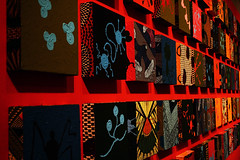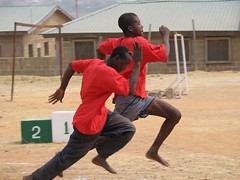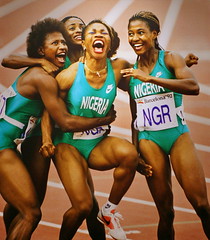| African art at the Metropolitan Museum of Art, U.S. (Photo credit: tamaradulva) |
Globalization has had a profound impact on migration
patterns in Africa creating increasingly complex identities within Africa and
the African Diaspora. As Afua
Hirsch aptly narrates, she is often considered, “…too black to be British
and too British to be African". Many Malawians find themselves at the same
cultural crossroads. They are considered be too British to be Malawian and too
Malawian to be British and don’t fully fit in to either culture. Many are now seeking to self-identify as cosmopolitans and identify with both Africa and the culture of their host nation. They consider themselves not only cosmopolitan but also part of a new sub-culture coined 'Afropolitan'.
The term Afropolitan is becoming a part of contemporary
African vocabulary. It combines the words “African” and “Cosmopolitan” in to
lexicon befitting of the contemporary African identities and experience. An Afropolitan is an: “African from the
continent of dual nationality, an African born in the diaspora, or an African
who identifies with their African and European heritage and mixed culture.” Whether
they were born on the continent or overseas, not only do they bring a hybrid
cultural identity - they also bring a global perspective on issues. They are a
new breed of Malawians that think globally but act locally. This term aptly
describes many Malawians living in the Malawi and those that are living in the
Malawian Diaspora. Malawians that consider themselves Afropolitan are embracing
their roots bringing a resurgence of pride in African culture. Even those that
do not consider themselves Afropolitan are exposed to global culture from
television, radio, and satellite like other cosmopolitans around the world. Many
Afropolitans argue that Afropolitanism
moves beyond culture and in to political space – they lobby governments and
undertake voluntary projects on the continent. They have a commitment towards
improving the continent.
| Johannesburg - its motto is "A World-Class African City". Also known as Egoli, which means "City of Gold" in Zulu. It is also known informally as "Jo'burg", "Jozi", "Joeys" or "Egoli". (Photo credit: Wikipedia) |
Whilst some Africans make attempts to assimilate in to
foreign cultures by abandoning African cultures, Afropolitans embrace their
African roots wherever they are regardless of citizenship. They also reject the
notion that their “foreigness” makes them less of an African. In fact, they self-identify
as Africans and proclaim that citizenship does not make one African. As Taiye
Selasi highlights in her essay, ‘What is an Afropolitan?’, "We are
Afropolitans: not citizens, but Africans of the world." Africans are
therefore not any less ‘African’ simply because they crossed the border, sea or
street. Formal recognition of Afropolitans as citizens or dual citizens in Africa though is
important to solidify the relationship between this Africans in the Diaspora
and those on the continent. Citizenship issues for Afropolitans that do not
have citizenship on the continent needs to be debated and addressed. This will
help them have a greater impact on the continent and become even more engaged in Africa.










